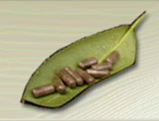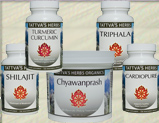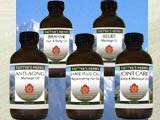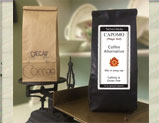 Sanskrit name: Kaunch, Atmagupta, Kapikacchu
Sanskrit name: Kaunch, Atmagupta, Kapikacchu
Botanical name: Mucuna Pruriens
Habitat: M. pruriens is an herbaceous twining annual. The leaves are trifoliate; the leaflets, broadly ovate, ellipticor thomboid ovate and unequal at the base; the flowers, purple and in axillary, pendulous racemes, the pods, curved, longitudinally ribbed, turgid and densely clothed with persistent pale brown or gray, irritant bristles; the seeds, black, 4-6 in a pod and avoid. This Ayurvedic herb is an annual climbing shrub common in the tropics of India; legumes are eaten as a vegetable.
Energetics:
- Rasa (taste): bitter, sweet
- Virya (action): heating
- Vipaka (post-digestive effect): sweet
- Doshas (constitutions): Balances Vata and Pitta
General information
Mucuna pruriens, commonly known as velvet bean or cow itch, is a plant indigenous to India, and has been used in Ayurveda for many different conditions. The ayurvedic names are Kaunch, Atmagupta, or Kapikacchu. Scientists and doctors in the west are now beginning to take a serious look at the potential benefits of this potent herb in a number of medical and psychological conditions.
The herb contains L-DOPA which is a neurotransmitter, and a precursor to the neurotransmitter dopamine. The L-DOPA content increases when used as an extract. L-DOPA, or levodopa converts into dopamine, an important brain chemical involved in mood, sexuality, and movement. As such, M. pruriens seeds have also been found to have antidepressant properties. It has long been used in traditional Ayurvedic medicine for diseases including management and treatment of Parkinson's disease. Recognized as an aphrodisiac in Ayurveda, mucuna pruriens has been shown to maintain and normalize testosterone levels, which may lead to deposition of protein in the muscles and help increase muscle mass and strength.
The plant and its extracts have been long used in tribal communities as a toxin antagonist for various snakebites.
Contraindications
Do not use when congested. Adverse effects were mild and were mainly gastro-intestinal in nature. No adverse effects were seen in clinical laboratory reports (lbid, 1995).
Reference
- Sihna, J Res Educ Indian med, 1992, 11(1), 15, Goyal, J Econ Taxon Bot, 1991, 15, 677.
- Manyam, B.V., et al. (1995) J. of alternative and Comp. Med., 1(3) 249-255.
- Amin, K.M.Y. (1996) Fitoterapia, 67: 53-58.
- Bhasin, S., et al. (1996) new England J. of Med., 335, 1-7.
- Singh, R.H. et al. (1989) J. Res. ayur. Siddha, 1(1): 1-6.
Related Products:
Mucuna Extract - 60 capsules
Mucuna Extract - 60 capsules

 Loading... Please wait...
Loading... Please wait...













